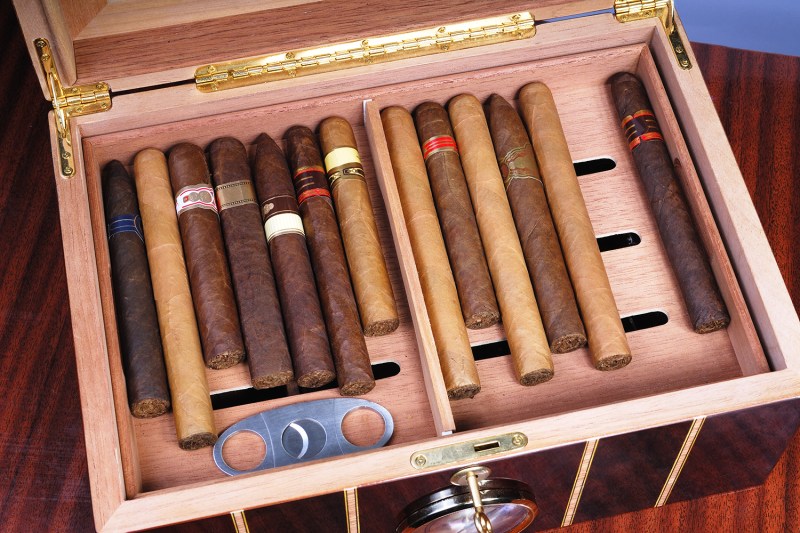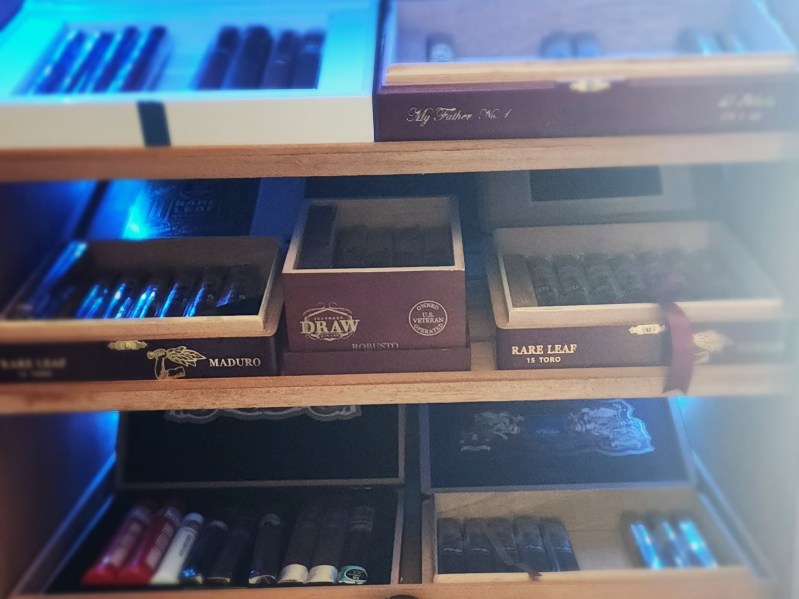
Looking at those beautiful, oily cigars you’ve just unboxed or unwrapped, the calling to light up is real. I get it. I always want to smoke my cigars right away, too. But you shouldn’t. Mail day is always exciting after you’ve ordered a slew of new cigars. When they arrive, the real fun begins. You’ll probably need to organize your humidor to make the new sticks fit or arrange them for optimal humidification. As you’re handling them, it’s difficult to resist the temptation to crack open the cellophane or boxes and smoke one right away. While you can do that in most cases, I would recommend against it. Depending on where those cigars came from, where you live, and how they traveled, they might need a little time to rest in a humidor. They’ll need to replenish some humidity and moisture or dry out a little.
How long should you let your new cigars rest?

When you put cigars in a humidor, especially one that’s filled, they’ll soak up and release humidity over time until they reach the average RH (relative humidity) that you have set inside your humidor. If you have a device like a that does this automatically, it will produce moisture and humidity to keep the levels optimal. You can also achieve the same thing with in smaller humidors, which release and soak up the humidity to match the levels on the label. Boveda packs come in a range of RH levels, from the low to mid-60s to the mid-70s.
For that reason, you always want to put your new cigars in your humidor and let them sit for a while so that the humidity levels are optimal; this is called resting. The rule of thumb is to leave them for a minimum of 30 days, with some experts recommending up to a few months of rest before you crack open your new cigars. I live in Florida, where it’s already humid, so I rarely have to let mine sit that long, depending on where I order my new batches. That being said, not every climate is the same, and in somewhere like Arizona, where it’s dry and hot, cigars may require a longer resting period if they’re shipped to you.
If you’re opening the boxes or a wrapped bundle to organize your humidor, that’s different. That’s fine; just don’t smoke them for at least a week — a longer rest is better, though.
Some cigars come shipped with Boveda and humidity packs inside the box. That’s not always the case, but when it is, you’re probably okay smoking one out of the batch as soon as you get them.
Humidity affects flavor and the smoking experience

Cigars that are too humid or dry won’t burn correctly. Not only that but also they’ll burn a little hotter by the head of the cigar, where you place your mouth. That can make for an uncomfortable experience, even more so when you factor in the influence that has on flavor. The natural oils and sugars of a cigar require moisture; without them, the smoking experience will be no bueno. It kills the nuanced flavor. That’s why you should keep your cigars in a humidor if you’re not smoking them immediately.
What about cigars from a cigar shop or local B&M?

Most cigar shops and lounges keep their cigars in a well-maintained humidor, which means they’re safe to smoke right off the shelf. There are exceptions, of course. If you buy from somewhere with a poorly maintained humidor, the cigars are probably either too dry or humid. You’ll know almost immediately after you light the cigar. If it burns hotter than usual, there’s perhaps a humidity problem.
You can rehydrate them, but if you just bought them, I wouldn’t even bother. Ask the shop for an exchange or a refund. If you have the opposite problem, and they’re too humid — you’ll know because they’ll be extra squishy — leave them out of the humidor to dry out for a little bit.
If you buy a bunch of cigars at a shop and take them home to smoke later, you’ll want to put them in your humidor. As long as they’re stored properly, they should be good to smoke whenever you’re ready.
How do I store cigars when I travel?

If you’re traveling for vacation, like going on a cruise or taking a trip somewhere, you’ll want to follow the same storage process, albeit with a smaller humidor. There are made of leather and hard cases called . If they have built-in humidification systems, like the Herf-a-dors, which have a little sponge, you can refill them with distilled water, or you can toss in a Boveda pack.
I use both types of travel cigar cases. I’ll put a handful of cigars in a leather or soft case for quick trips to visit family and friends. If I’m going on a cruise or flying somewhere, I’ll toss a bunch in my Herf-a-dor because they benefit from the added protection. There’s nothing worse than opening your case and finding a bunch of crushed and damaged cigars.
That’s all for now. I certainly hope these cigar guides help a little!



